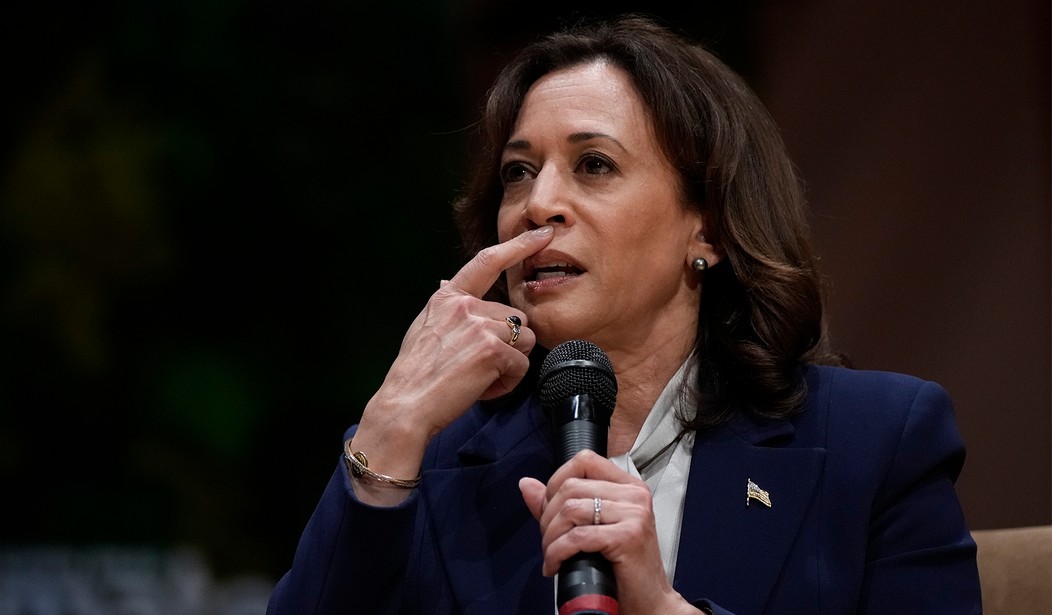Vice President Kamala Harris’s idea about "the day after" fighting ends between Israel and Hamas was roundly criticized on social media.
During a trip to Dubai for the UN climate summit, where she spoke with leaders from Egypt, Jordan, and the United Arab Emirates, Harris said the Palestinian Authority “must be strengthened to eventually assume security responsibilities in Gaza.”
“The Palestinian Authority must be revitalized, driven by the will of the Palestinian people,” she added, noting that doing so would “allow them to benefit from the rule of law and a transparent responsive government.”
But on social media, plenty reminded her why that's a terrible idea.
The Palestinian Authority literally pays stipends, millions of dollars, to suicide bombers who killed Jews and their families. The PA literally funds terrorists.
— Marina Medvin 🇺🇸 (@MarinaMedvin) December 3, 2023
Biden administration knows this. They admitted as such to Congress.https://t.co/FM3LLKkZNx
Weeks after a brutal terror attack, and as innocent Israeli and American civilians are still being held hostage today, Kamala Harris goes to the Middle East and calls for a revitalization of the Palestinian Authority. Absurd! https://t.co/4NnpSqakop
— Ron DeSantis (@RonDeSantis) December 3, 2023
David Friedman, the former U.S. Ambassador to Israel, had some questions for Harris.
How exactly would you “revitalize” the PA? Would you
— David M Friedman (@DavidM_Friedman) December 3, 2023
— have them stop endorsing Hamas and its barbarity?
— have them stop blaming Jews for the Holocaust?
— have them rescind their laws criminalizing homosexuality?
— have them rescind their laws making the sale of a Palestinian… https://t.co/tlX6ybp4nM
Recommended
The full context of Harris's remarks are below:
Shortly after October 7th, President Biden and I began discussions with our national security team about post-conflict Gaza. We have begun to engage partners in the region and around the world in these conversations, and this has been a key priority over the last eight weeks.
Five principles guide our approach for post-conflict Ga- — Gaza: no forcible displacement, no reoccupation, no siege or blockade, no reduction in territory, and no use of Gaza as a platform for terrorism.
We want to see a unified Gaza and West Bank under the Palestinian Authority, and Palestinian voices and aspirations must be at the center of this work.
At a certain point, the intense fighting and the phase of fighting will end and we will begin implementing our plans for the day after. To develop these plans then, we will continue to work with both Israelis and Palestinians.
But there must also be regional consensus and support. To that end, I’ve had a number of in-depth conversations with Arab leaders here in Dubai. Specifically, I proposed three areas of focus:
One, reconstruction. The international community must dedicate significant resources to support short- and long-term recovery in Gaza — for example, rebuilding hospitals and housing, restoring electricity and clean water, and ensuring that bakeries can reopen and be restocked.
Second, security. The Palestinian Authority Security Forces must be strengthened to eventually assume security responsibilities in Gaza. Until then, there must be security arrangements that are acceptable to Israel, the people of Gaza, the Palestinian Authority, and the international partners. And to reiterate — and this is very important — terrorists will not be permitted to continue to threaten Israel.
Third, governance. The Palestinian Authority must be revitalized, driven by the will of the Palestinian people, which will allow them to benefit from the rule of law and a transparent, responsive government.
Eventually, this revitalized PA must have the capacity to govern Gaza, as well as the West Bank. We believe progress on these three areas — reconstruction, security, and governance — will improve the lives and livelihoods of the Palestinian people.
Further, we have been clear, the Palestinians have a right to dignity and self-determination. And Israelis and Palestinians must enjoy equal measures of prosperity and freedom. They also deserve — all deserve a sense of safety and security. And a two-state solution, then, remains the best path, we believe, toward a durable peace. The President and I are committed to that goal.
In conclusion, when this conflict ends, Hamas cannot control Gaza, and Israel must be secure. Palestinians need a hopeful political horizon, economic opportunity, and freedom. And the region, more broadly, must be integrated and prosperous. And we must — we must work toward that vision. (White House)























Join the conversation as a VIP Member